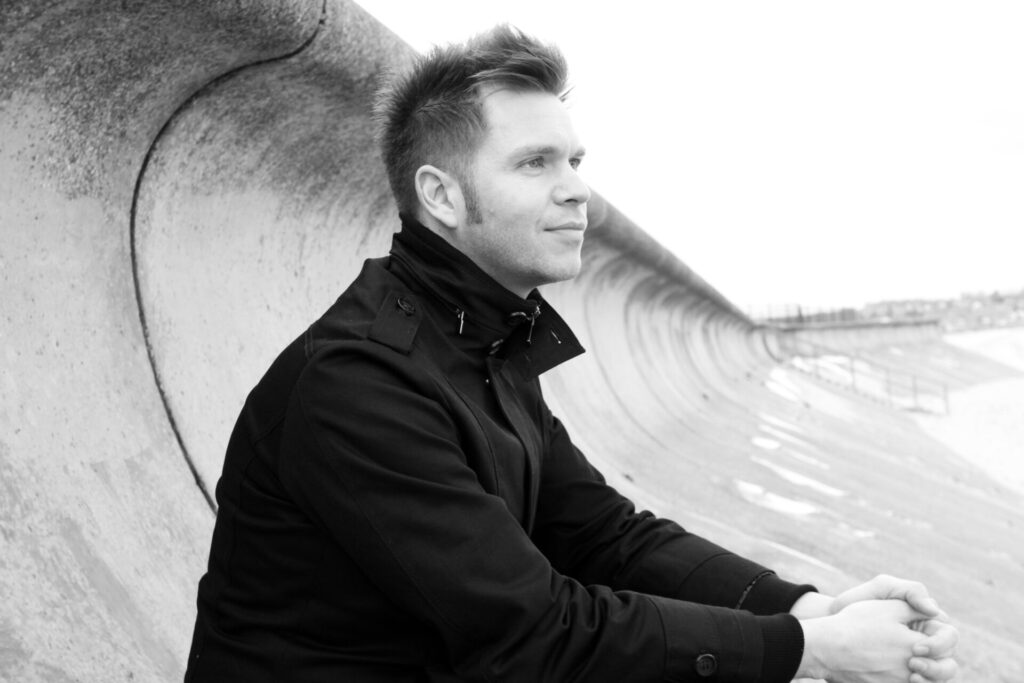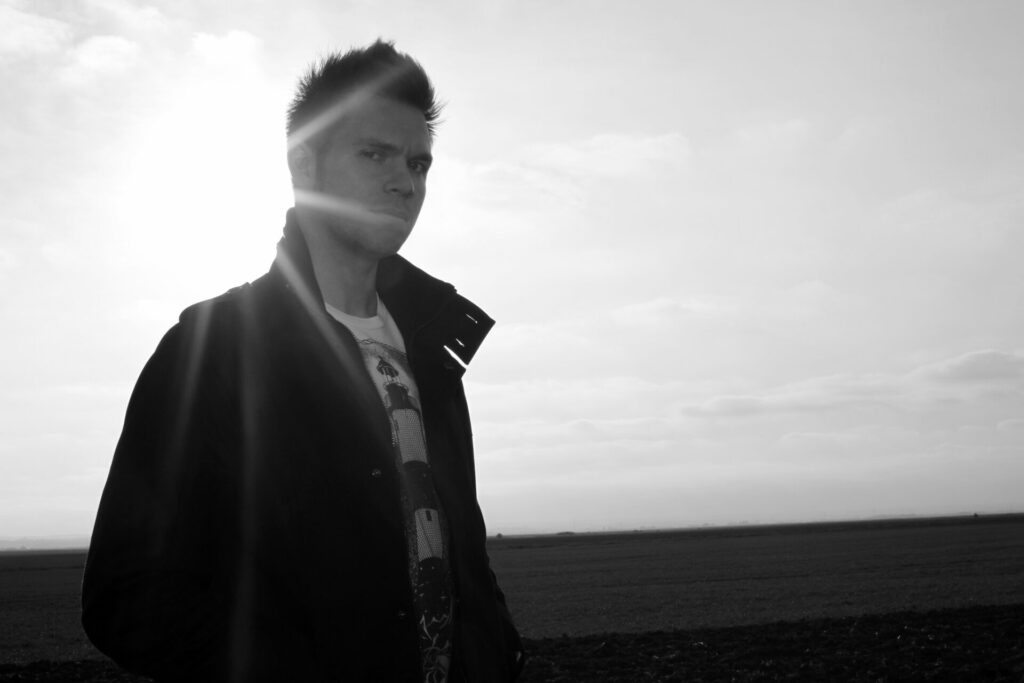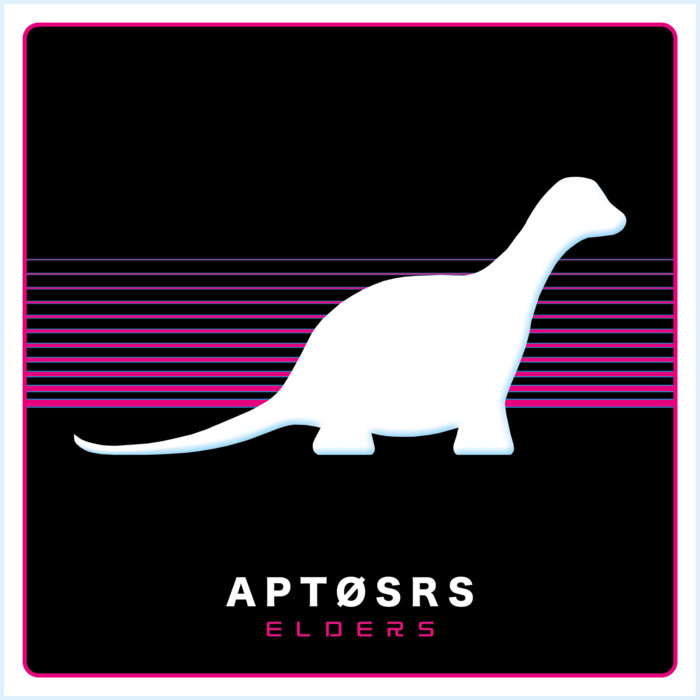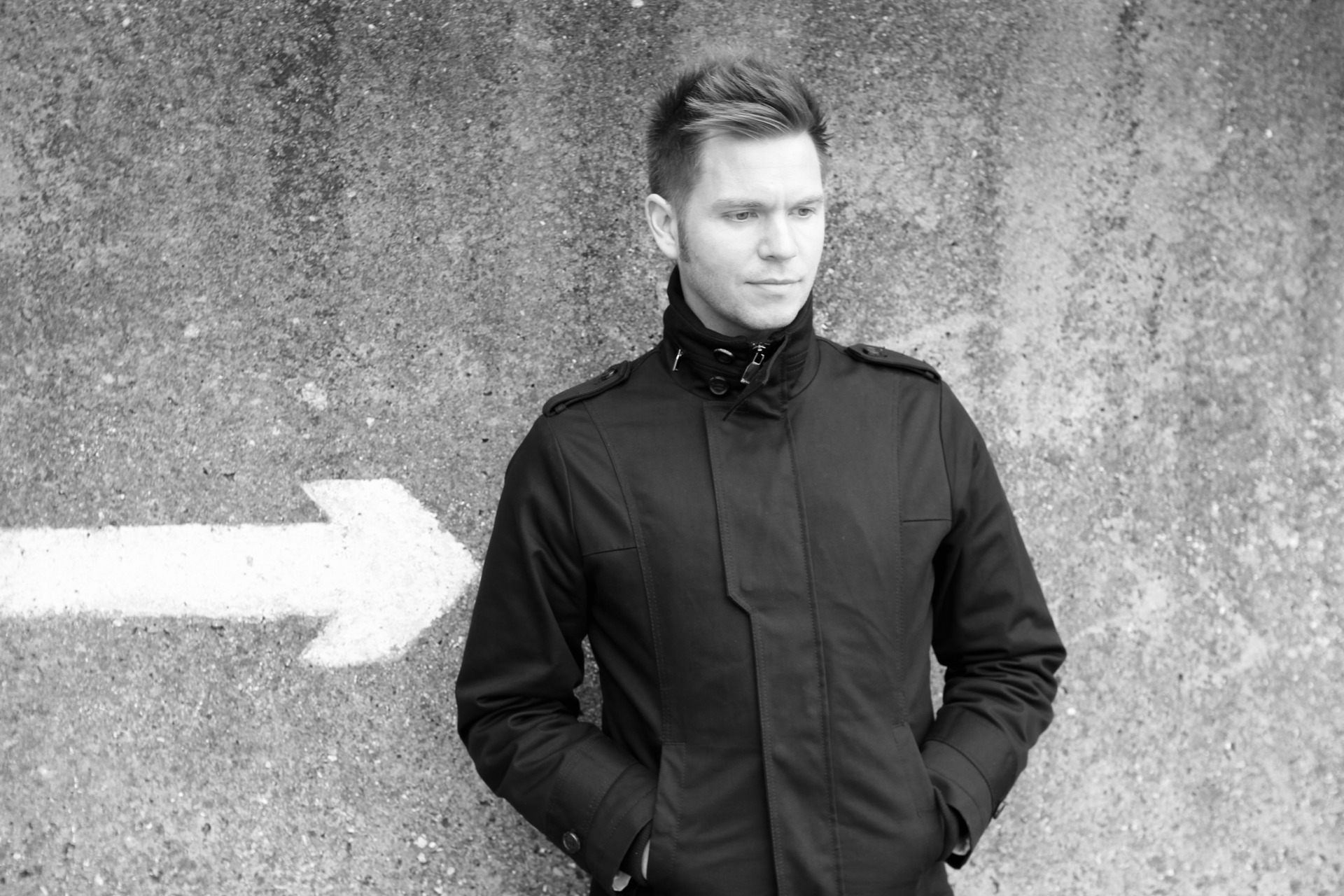Aptøsrs is the new instrumental project from Independent Music Award-nominated composer/songwriter/producer Paul Terry. Aptøsrs blends synthwave with cinematic orchestrations, lead bass guitar, piano, and drums that glitch between downtempo, breakbeat, and rock.
Paul has composed and produced more than thirty soundtracks, including for numerous award-winning productions. His other musical collaborations include Anneke van Giersbergen (The Gathering, Devin Townsend) and Love Amongst Ruin (ex-Placebo drummer Steve Hewitt’s band). Check out the exclusive Interview below:

1. Can you tell us a bit about where you come from and how it all got started?
APTØSRS: I live in Los Angeles, California, but I’m originally from England. Aptøsrs is my new instrumental, post-rock, synthwave-esque project. I wrote and made the debut album Elders last year.
But the first record I made by myself was way back in 1999. That was the soundtrack to a short thriller called Sold. I released that via my own indie label called SkyBabyRecords. So, 2024 marks 25 years of being an independent music artist.
There’s been a ton of eclectic projects in those intervening years, from singer-songwriter acoustic albums under my other project name Cellarscape, through to metal, jazz, and a few dozen soundtracks for film, TV, podcasts, and theatre.
2. Did you have any formal training or are you self-taught?
APTØSRS: The drums are my first instrument and I did have lessons as a kid. Some year later I taught myself guitar, piano, and how to arrange parts for other instruments like strings, horns, and orchestral sections.
3. Who were your first and strongest musical influences and why the name Aptøsrs?
APTØSRS: It really was an eclectic bunch of strong influences since childhood into my teens. When I was growing up, I loved Queen, ELO, The KLF, Roachford, and loads of pop too. And my parents would play The Carpenters, Tina Turner, The Shadows, and Nat King Cole. Into my teens, artists like Live and PJ Harvey, as well as super-heavy ones like Devin Townsend and Machine Head. And they’re still on regular rotation all these years later.
Last year, when I decided to make a brand new album with a synth-led instrumental vibe, I knew it had to be under a new moniker. The Apatosaurus is my favorite dinosaur, and I love making up words—see “Cellarscape” for evidence of that. “Aptøsrs” just felt like an appropriate project name for a new venture with dino-sized beats, tones, and synth-scapes.
4. What do you feel are the key elements in your music that should resonate with listeners, and how would you personally describe your sound?
APTØSRS: I defer to the recent reviews of Elders, because I find it really interesting how others react to it, and the Aptøsrs sound overall. There are phrases that come up quite a lot like “cinematic”, “synth-infused” and “post-rock” and “genre defying” which I especially enjoy. Because I really didn’t write Elders with a specific genre in mind. I wanted to combine somewhat contradictory things like emotional piano sections and heavy drums you’d normally associate with metal. But if I also wanted to incorporate strings or breakbeats, I went there too.

5. For most artists, originality is first preceded by a phase of learning and, often, emulating others. What was this like for you? How would you describe your own development as an artist and music maker, and the transition towards your own style?
APTØSRS: I think that’s a really excellent point. The more I got into making music, I definitely wanted to experience as many kinds of music as I could. Even if I came across a sub-genre or artist’s music that I didn’t connect with, there’s an important creative lesson to learn from that too.
With regards to songwriting, I think I really benefitted from writing scores over the past 25 years, because composers are forced to combine seemingly unrelated genres and tones to get the music to the place it needs to be for the film’s story.
Overall, I enjoy learning new musical things and being inspired by new music every day. It’s exciting to bounce between something like Aptøsrs, which is a brand new project—but one that will have more albums—and the next soundtrack which will require a bespoke composing approach.
6. What’s your view on the role and function of music as political, cultural, spiritual, and/or social vehicles – and do you try and affront any of these themes in your work, or are you purely interested in music as an expression of technical artistry, personal narrative, and entertainment?
APTØSRS:
I think the wonder and power of music is that it can it be all of those things and more. I compose from a very emotional place, and so that remains the core tenet: try to craft a piece of music that hopefully connects with the listener on an emotional level.
7. What would you consider some successful, proud or significant points in your music career so far?
APTØSRS: I’m forever grateful that Adam Noble came on board to mix this first Aptøsrs album. I adore how Elders is mixed.
With my Cellarscape work, doing the duet “The Same Place” with my friend Anneke van Giersbergen remains a big highlight. And I love that my song “Failsafe” became the theme song for NBCUniversal’s podcast docu-series Behind The Panel.
Looking back at my composer work to date, scoring the documentary about The Rocketeer creator, Dave Stevens: Drawn To Perfection was a thrill because I’m a lifelong fan of The Rocketeer. And being the composer on Sidney & Friends meant collaborating with amazing vocalists Silas Miami and Lana Crowster for what was a very emotional film to score.
8. With social media having a heavy impact on our lives and the music business in general, how do you handle criticism, haters, and/or naysayers in general? Is it something you pay attention to, or simply ignore?
APTØSRS: I ignore it all. I never engage. Life and time itself is too precious to waste it on that negativity. I post pretty regularly about my music and other creative projects, but it’s literally a case of “craft the post, hit post, close the app and get on with my day.”
9. Creative work in a studio or home environment, or interaction with a live audience? Which of these two options excites you most, and why?
APTØSRS: Definitely the home studio. I love that I can leap on an idea as it comes to me, and then follow it down the rabbit hole until it takes me to wherever it’s supposed to take me. That’s literally how the Aptøsrs album came to be.
10. Do you think is it important for fans of your music to understand the real story and message driving each of your songs, or do you think everyone should be free to interpret your songs in their own personal way?
APTØSRS: I don’t think me explaining what was in my head when I wrote a song is additive—I think it takes something away from the listener’s experience. If I reveal what a song means to me, the listener cannot un-hear or un-know that information.
How we all react to music is very personal. Once you hear a song, it can become something very precious to you with regards to how you interpret it or tie it to something going on in your life. That’s too important to break that bond. So I never want to influence or change what someone feels or interprets about my music.
KEEP IN TOUCH:
FACEBOOK | SPOTIFY | BANDCAMP | WEBSITE | YOUTUBE

